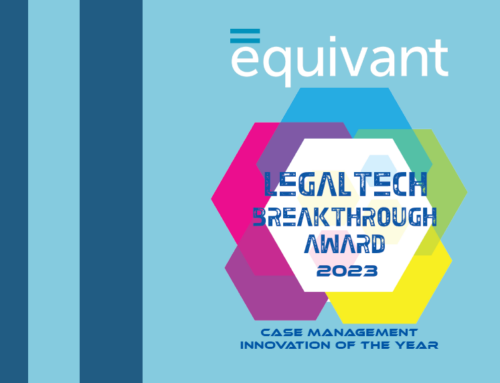Can you defend your pretrial practice? 3 points to consider

Think about your pretrial practice. Could everyone at your agency explain how your processes support your goals? Do all stakeholders understand the “how” and “why” of your pretrial practice? In many jurisdictions, the answer is no.
Being able to defend your pretrial practice is essential because if you’re not making strategic, goal-driven decisions, you risk having a “practice” that’s an aggregation of tools and processes and not a defensible strategy at all. Every tool, every process, and every decision related to pretrial must be data-driven and helping you reach your goals.
According to the National Institute of Corrections, “effective pretrial justice systems utilize risk-based decision-making to release or detain defendants while maintaining public safety and high levels of court appearance. All other essential elements flow from this defining principle.”
So, what are the other essential elements? Other essential elements include collaboration among stakeholders, active participation by prosecutors and defense counsel, release options following or in lieu of arrest, a legal framework that balances individual rights with victim and community safety, and more.
At the agency level, essential elements can include performance measurement and feedback, an operationalized mission, and risk-based supervision, among others. In any conversation about what’s essential in pretrial practice, assessment tools are also a key consideration.
To make an informed and defensible decision about your agency’s use of an assessment tool, here are the top three questions to consider:
- Do you need an assessment tool at all? In addition to making release decisions, your agency has numerous decisions to make about if and how to supervise individuals on pretrial release. If an assessment tool can help inform those decisions, then it may be a worthwhile addition to your pretrial practice. But, if you have other evidence-based systems in place for informing key decisions, then an assessment might be unnecessary, or worse, a complicating factor that takes up your team’s time.
Be careful not to slip into the mindset of equating pretrial assessment tools with pretrial practice. A tool, if used, should inform your practice, but it does not constitute your entire practice. That’s why our second question is so important. Choosing an assessment (or not) is all about filling the right need in your pretrial practice.
- What do you need your assessment to do? Are you looking for evidence-based recommendations for conditions of release? Do you want to inform bond recommendations? Not all pretrial assessment tools are alike, and it’s important to consider what exactly you need from your tool in order to choose the right one.
The three most commonly used assessments are the Virginia Pretrial Risk Assessment Instrument (VPRAI), the Ohio Risk Assessment System-Pretrial Assessment Tool (ORAS-PAT), and the Public Safety Assessment (PSA). All three tools differ slightly so it is imperative to understand the specifics of each tool and its effect on your pretrial process and outcomes. One of these may be a good fit for your agency, or they may not, and it all depends on what you need your assessment tool to do.
- Is your assessment tool locally validated? If you can’t answer “yes” to this question, then your answer should be “not yet.” Local validation is critical to the efficacy of your tool. The three tools mentioned above are nationally validated, which is a good first step, but unless the tool you use is validated to your local population, it may not be measuring what you need it to measure. Validation studies take time and resources, and if you’re currently using an unvalidated assessment, start planning for your validation study immediately.
Defensible pretrial practice starts with clear goals and data-informed processes, and it requires every other element of your practice to be carefully vetted to ensure it contributes to those goals. An assessment tool may or may not be part of your practice, and it should certainly never stand alone.
Whether you’re working to establish your pretrial practice or you’re reviewing or updating your approach, we can help. Give us a call today to talk through your options.





